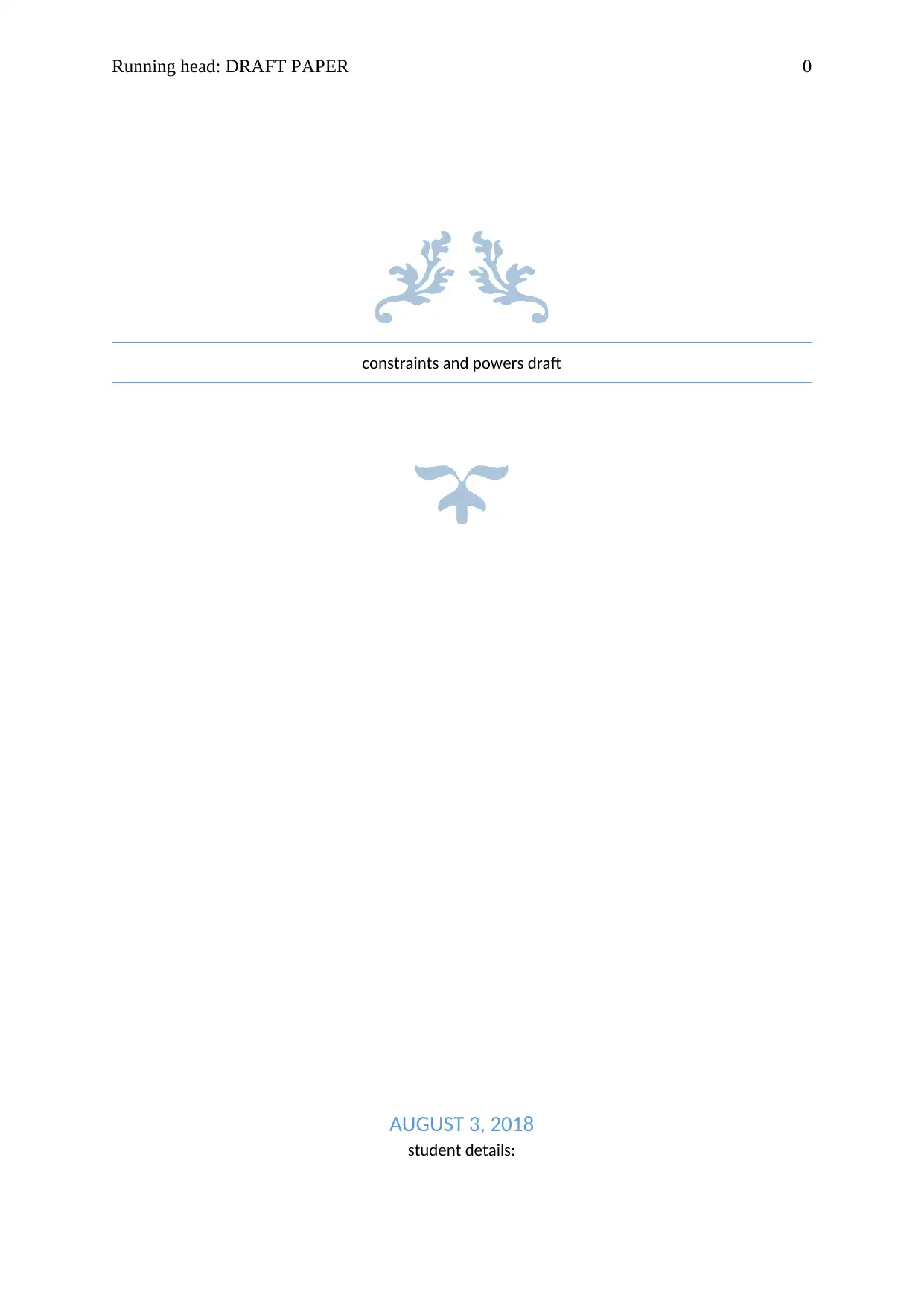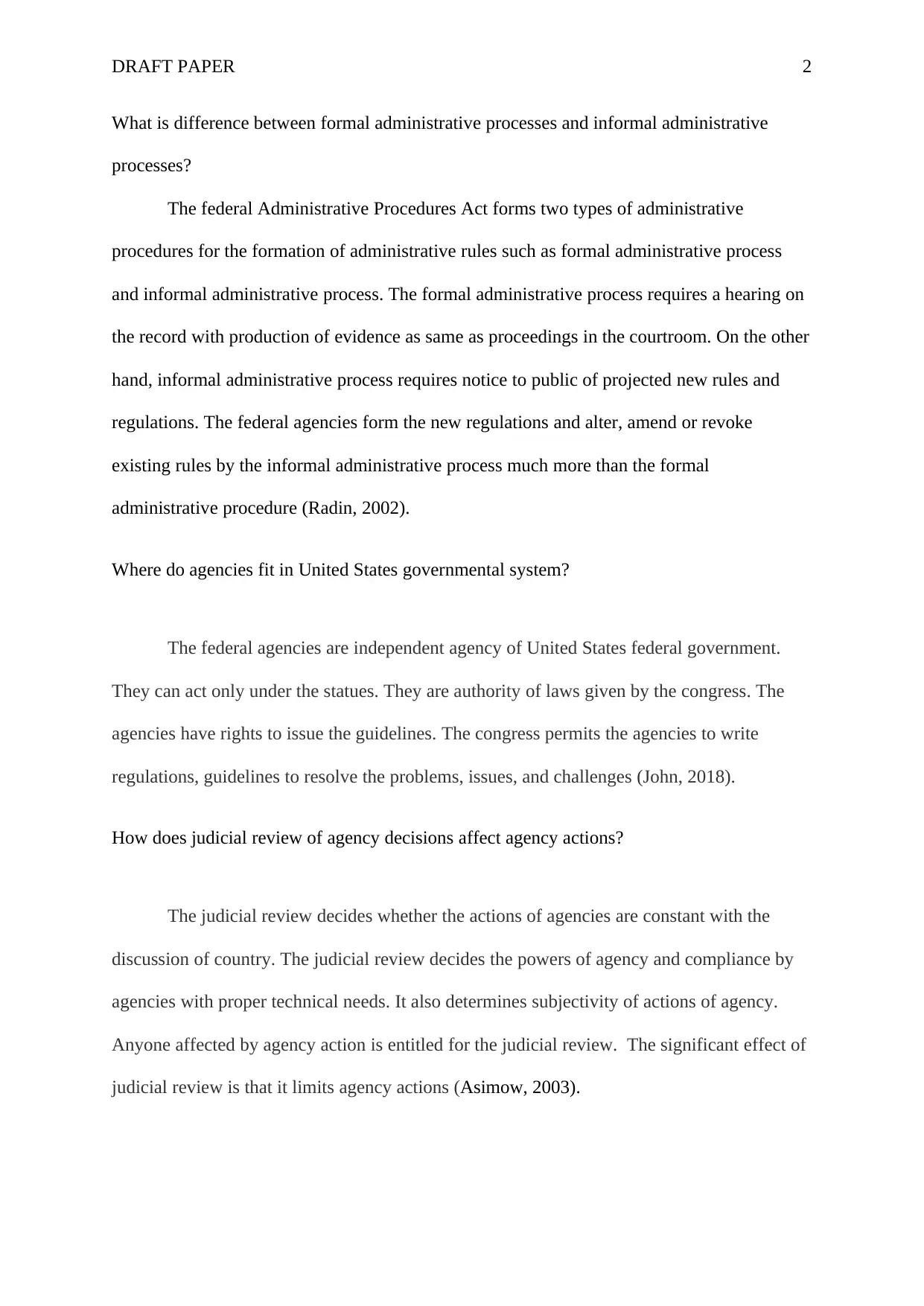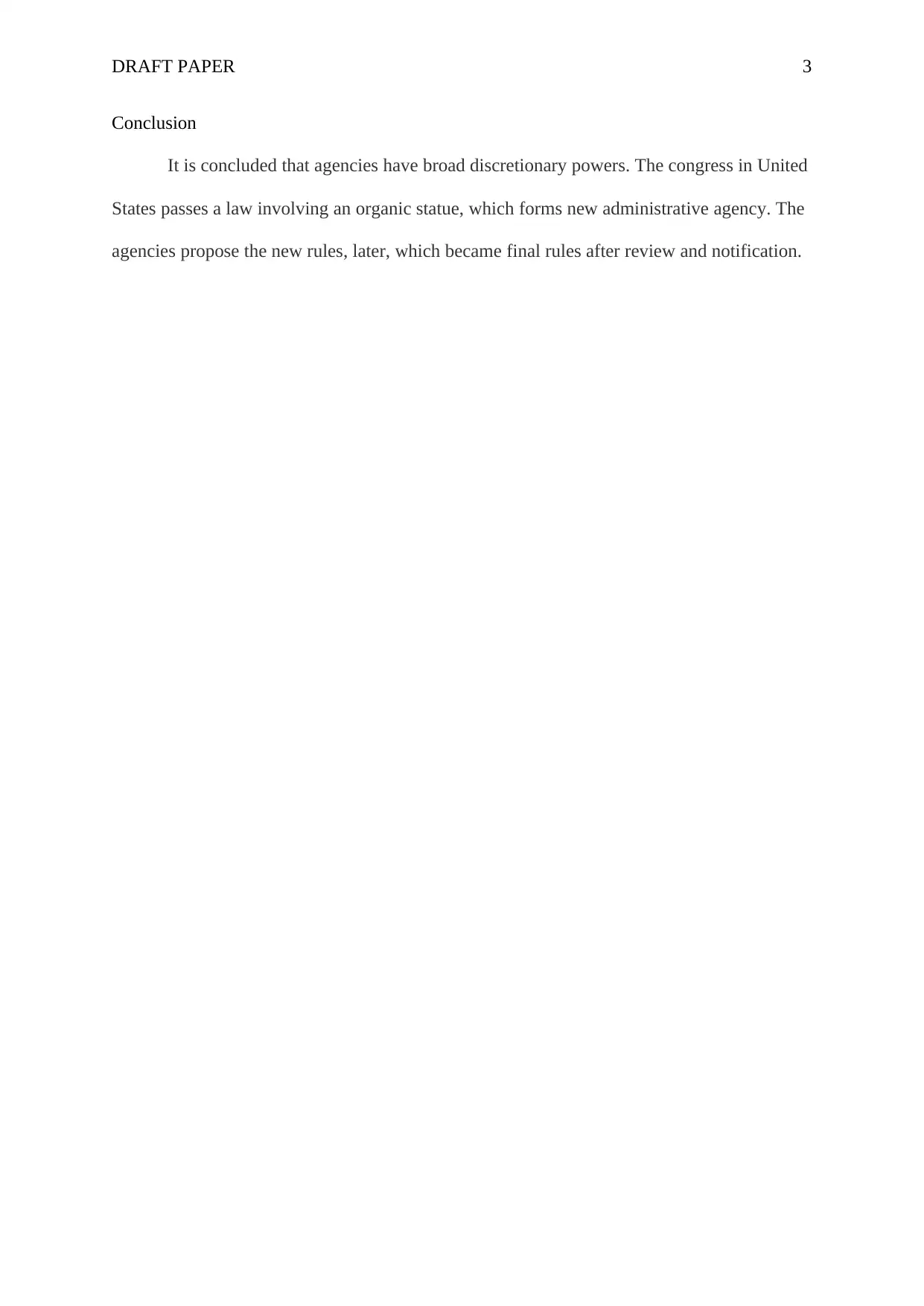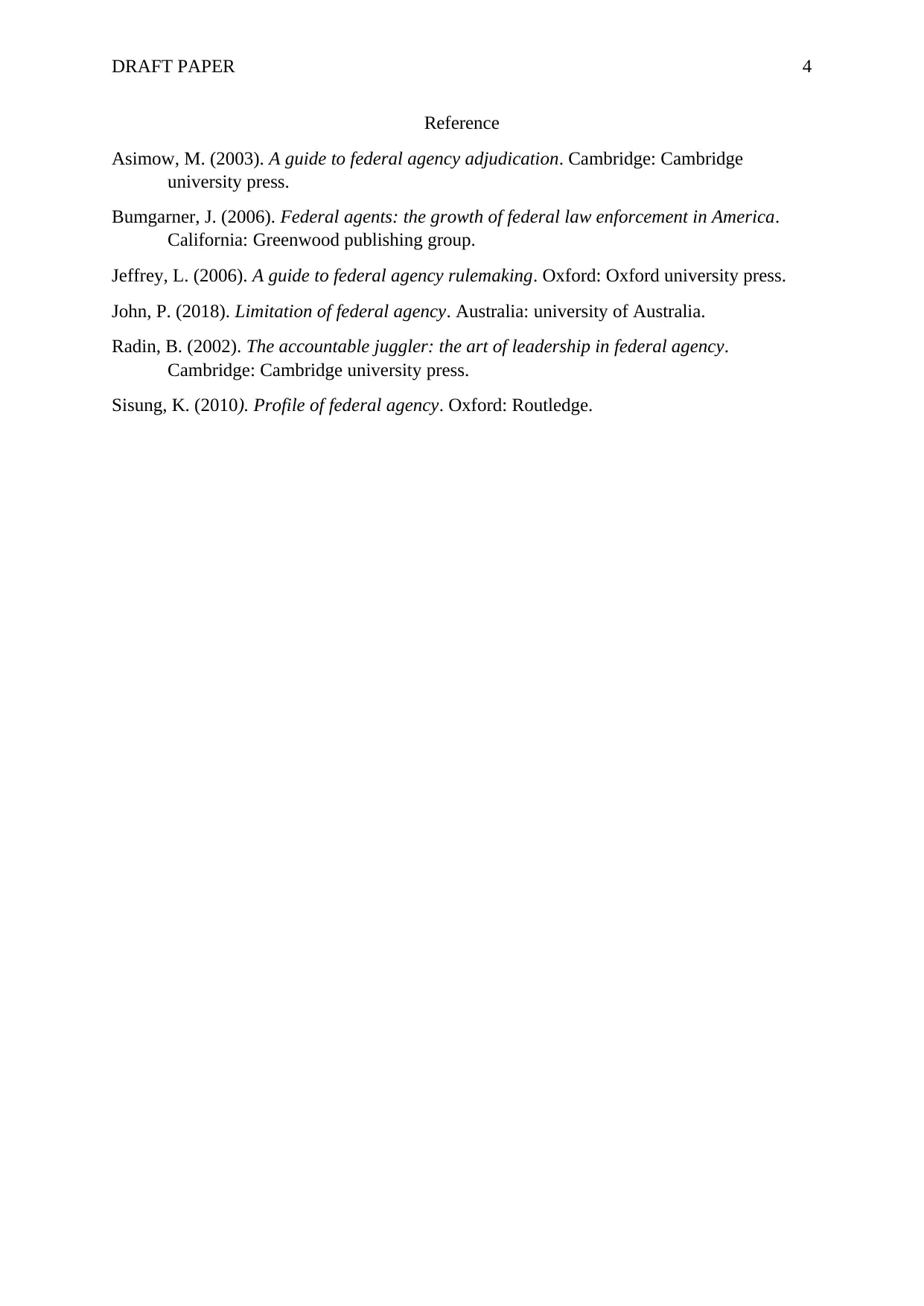Exploring the Powers and Constraints of Federal Agencies in the US Law
VerifiedAdded on 2023/06/09
|5
|772
|151
Essay
AI Summary
This essay delves into the constraints and powers of federal agencies in the United States, focusing on their administrative processes such as rulemaking, enforcement, and adjudication. It differentiates between formal and informal administrative processes, highlighting the role of enabling acts in defining agency authority. The paper also explores how agencies create law through rulemaking, adjudication, and policy declarations, emphasizing the impact of judicial review on agency actions. Ultimately, the essay concludes that while agencies possess broad discretionary powers, they are subject to limitations and checks within the U.S. governmental system. Desklib provides access to a wide range of study tools and solved assignments for students.
1 out of 5










![[object Object]](/_next/static/media/star-bottom.7253800d.svg)